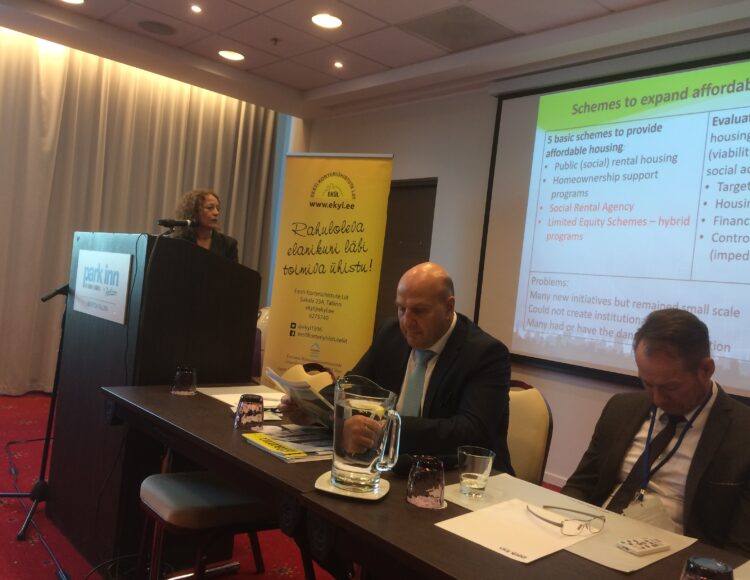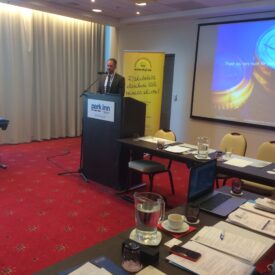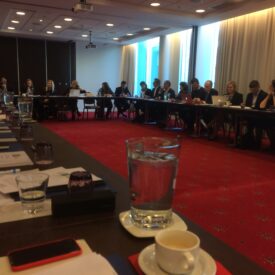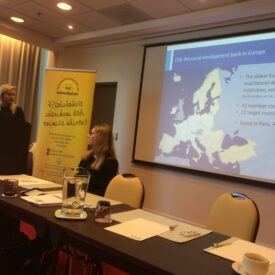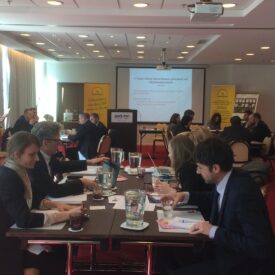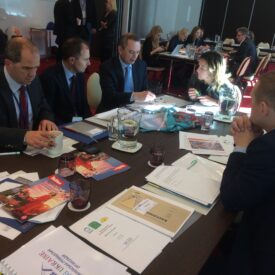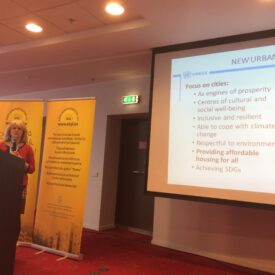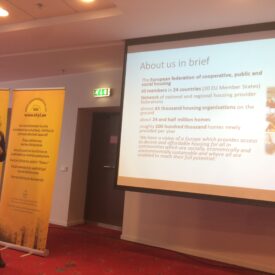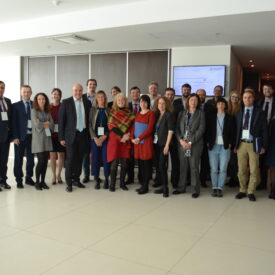The 4th meeting of the Housing Europe Working Group in support of countries with housing systems in transition took place in Tallinn on April 16th with the support of the Council of Europe Development Bank (CEB). The event was hosted by Housing Europe Estonian member, EKYL and its President, Andres Jaadla who is also chairing the Working Group.
For the fourth time over the last 2 years this unique platform that Housing Europe set up in response to numerous requests from different countries across Europe gave the opportunity to over 50 participants to come together for an intense day of work that helped them address practical questions concerning policies or schemes they are trying to put in place.
The first part of the day was dedicated to the fundamental questions local authorities and national governments are confronted with ‘Which housing system to choose & how to finance’, discussing also the involvement of private sector in the provision of affordable housing. Participants had the chance to get an overview of the different models based on the target populations in need and their added value. The social rental agency presented by MRI Budapest, the cooperative housing provider and saving institution model explained by Spar- und Bauverein Dortmund, and the social housing model presented by the City of Ostrava and Ukraine Housing Fund.
The second session went into the details of business models and success factors of existing financing schemes presenting the means that national and local authorities can benefit from. CEB Experts presented relevant activities and recent projects in the Eastern region, the Estonian Ministry of Economic Affairs and Communications spoke about the policy priorities and available financing schemes, and finally, the participants also learned about the ELENA programme- managed by the EIB-which is providing project development assistance for the preparation of energy efficiency investment programmes.
The discussion was followed by an exchange around the social inclusion measures of housing providers through a number of examples illustrating that affordable housing is going beyond bricks and mortar, working towards sustainable neighbourhoods. Bilbao Viviendas explained how to link housing with education, health and long-term care in order to reduce welfare expenditure. CEB Experts presented the relevant indicators that are playing an important role to evaluate the impact of supported projects. Last, but not least, the city of Bratislava showed how the first Housing First project was implemented in the city.
The last bit was quite special, since for the first time within the framework of the Working Group an actual ‘match-making’ platform between participants and CEB/EIB project experts took place. The session created a space between potential beneficiaries and experts of International Financial institutions to discuss project ideas. In total, 10 projects were discussed and the Experts gave their feedback on points that project proposals need to develop more and on how to move from a concept/idea towards a proposal.
Watch statements from various participants in the video above and download the detailed report (in pdf) below.
